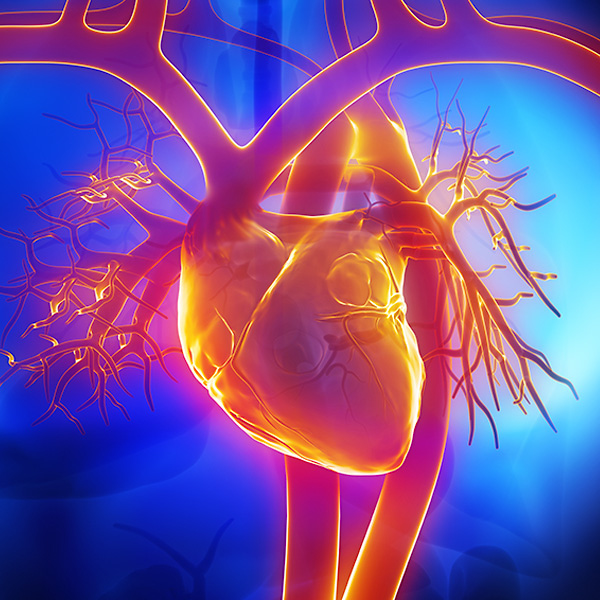Hypertrophic Cardiomyopathy
Overview and Facts about Hypertrophic Cardiomyopathy
Hypertrophic cardiomyopathy (HCM) occurs when the heart muscle thickens, or hypertrophies. When this occurs, it makes it hard for the heart to pump blood throughout the body.
Like many heart conditions, HMC often doesn’t show symptoms until a severe heart issue arises. While some people may experience shortness of breath or chest pain, others have no symptoms until they have a cardiac emergency. In about 1% of those with hypertrophic cardiomyopathy, the first—and last—symptom is cardiac death.
Signs and Symptoms of Hypertrophic Cardiomyopathy
Although most patients don’t display symptoms of hypertrophic cardiomyopathy, some may experience:
- Shortness of breath
- Chest pain
- Fainting
- Heart palpitations
In many cases, these symptoms become worse during or right after exercising.
Causes and Risk Factors of Hypertrophic Cardiomyopathy
In most cases of hypertrophic cardiomyopathy, the root cause is a gene mutation that results in the heart muscle’s abnormal thickness. Some of those with HCM may also have myofiber disarray, or an abnormal arrangement of cells in their heart muscle, which can lead to thickening.
Most people who develop HCM have inherited the condition. For children with a parent with HCM, there’s a 50% chance of having the genetic mutation that causes the heart muscle to thicken.
Tests and Diagnosis of Hypertrophic Cardiomyopathy
If your doctor thinks you may have hypertrophic cardiomyopathy, along with a thorough physical exam and medical history, you might have some other tests and screening procedures. In most cases, the doctor will recommend an echocardiogram, which allows them to see the thickness of your heart muscle and determine if your blood flow is obstructed.
In addition, your doctor may request that you have an:
- Electrocardiogram (ECG)
- Stress test
- Holter monitor
- Cardiac MRI
- Cardiac catheterization
If you have a first-degree relative (mom, dad, sister, or brother) with HCM, your doctor may suggest genetic testing to see if you carry the gene mutation that puts you at risk for the heart condition.
Treatment and Care for Hypertrophic Cardiomyopathy
Hypertrophic cardiomyopathy isn’t curable, but your doctor will work to better manage your symptoms and reduce your risk of sudden cardiac death. Depending on the specifics of your case, your doctor may recommend:
- Medication to slow your heart rate and relax the muscle
- Medication to thin your blood
- Septal myectomy, an open-heart procedure to remove the thickened part of your heart
- Septal ablation, where a portion of the thickened muscle is destroyed by injecting alcohol into it
- An implantable cardioverter-defibrillator (ICD) that monitors your heartbeat and delivers electrical shocks to restore your rhythm
In addition to these medications and procedures, your doctor will also recommend some lifestyle changes to improve your heart health and reduce your risk of a cardiac emergency. These may include:
- Getting regular exercise
- Eating a healthy diet
- Reaching and maintaining a healthy weight
- Reducing alcohol consumption

Request an Appointment
Loyola Medicine heart and vascular specialists have the experience and technology to treat the most difficult cardiac and vascular conditions. Schedule an appointment today.
Schedule a Telehealth Appointment
